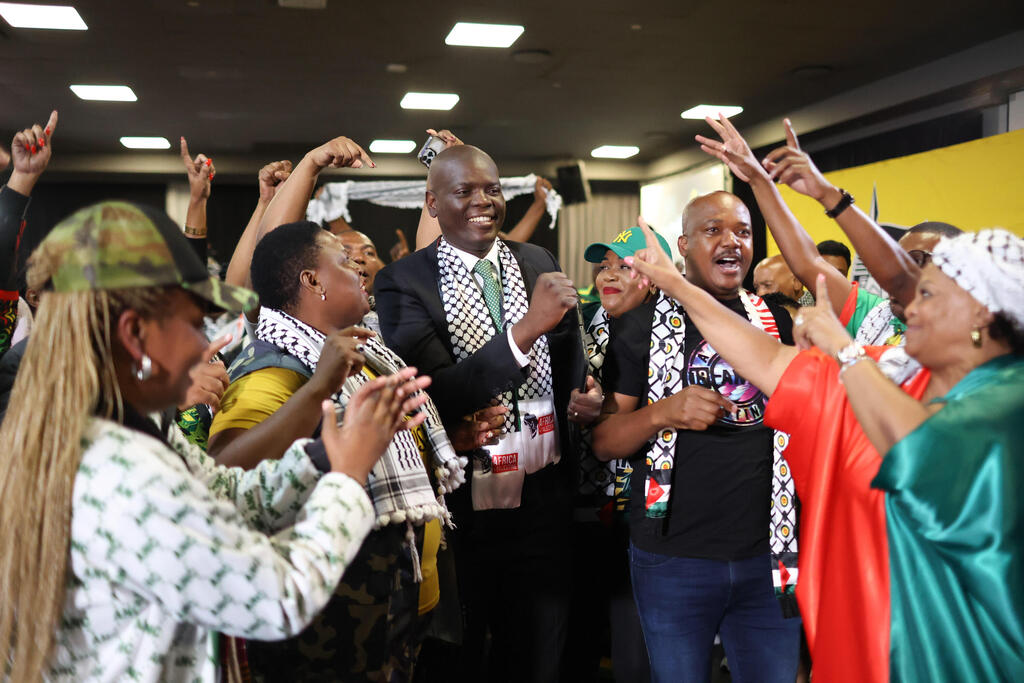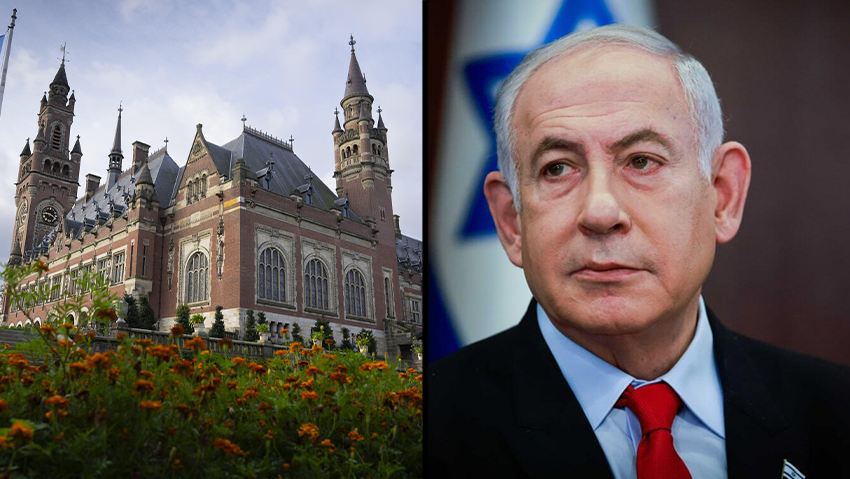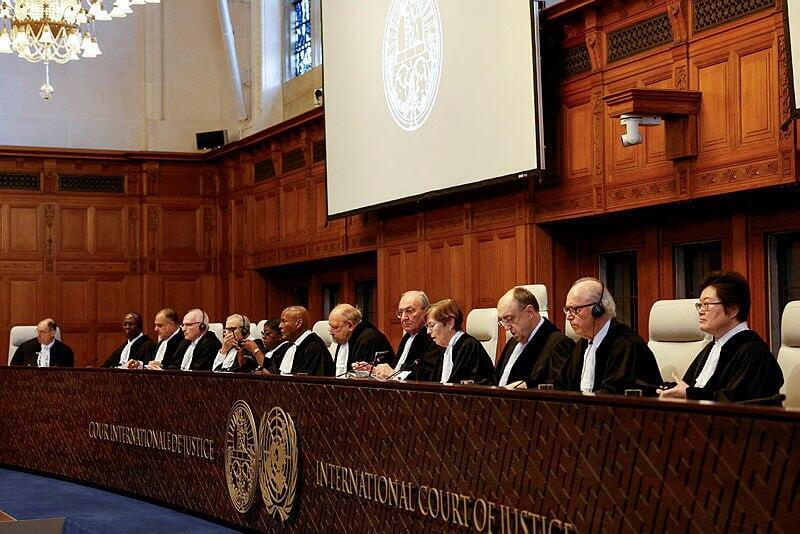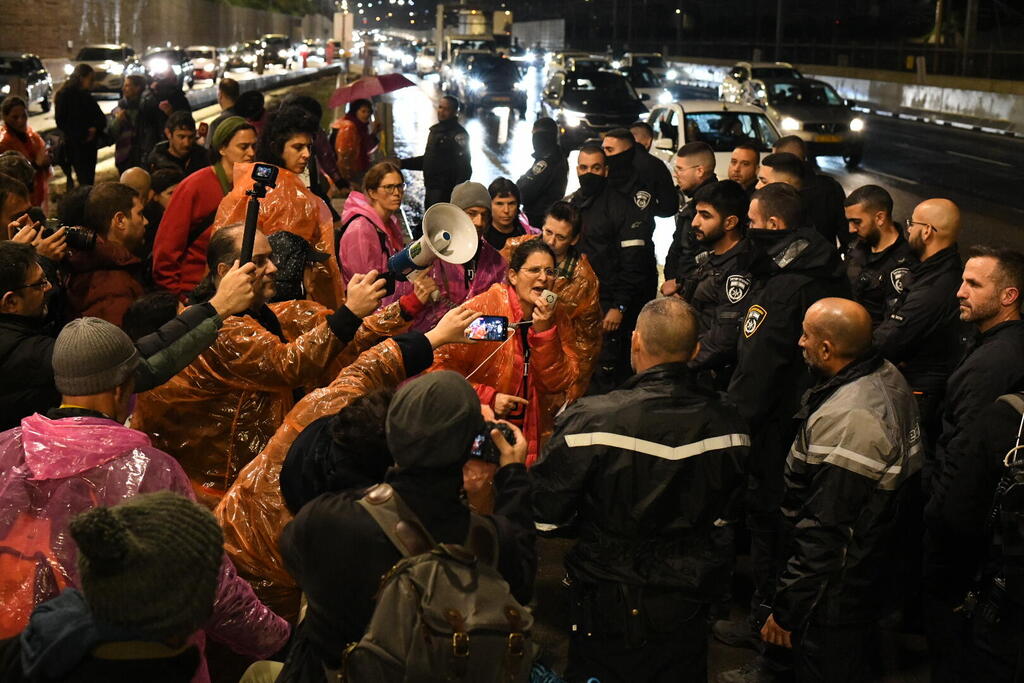Getting your Trinity Audio player ready...
A sense of relief was felt in Israel on Friday following the decision of the International Court of Justice in The Hague, which effectively rejected South Africa's request for an order to end the war in Gaza.
Read more:
Israeli officials expressed satisfaction that the interim orders that were issued did not include excessive demands from their side. However, the court also rejected Israel's request to dismiss South Africa's claim of "genocide" against the Palestinians at the outset, initiating a legal process that is expected to take years. Although it is anticipated that the claim will eventually be dismissed, Israeli officials are concerned that the protracted trial will damage Israel's international image and increase international and diplomatic pressure.
In its decision Friday, the Hague Court issued six orders that Israel is required to comply with: to refrain from any act of genocide in the Gaza Strip, to ensure that the IDF does not carry out such actions; to allow the entry of humanitarian aid to the Gaza Strip, to prevent incitement to genocide and to punish for such; to preserve evidence regarding claims of genocide and to prevent the destruction of such evidence; and to report on the implementation of these orders in a month.
Legal and political sources in Israel expressed satisfaction with the fact that the orders are fairly moderate and do not include the measures that Israel feared the most: an order to stop the war and a demand to allow Palestinians to return to their homes in the northern Gaza Strip, nor an order requiring the admission of international inspectors to Gaza, but rather settling for an order to prevent the destruction of evidence.
According to the sources, all the demands presented in the interim orders are those to which Israel is already committed, and they claim there is no operational dimension to them.
"The court referred to humanitarian aid - which we are already allowing in; the court asked to refrain from actions that would cause genocide - we are already avoiding genocide. There is no order that prohibits us from doing something we are doing today, and the fighting will continue as usual," a source told Ynet.
Senior Israeli officials argue that even the order regarding the need to act against Israeli officials calling for genocide is not very significant, as Attorney-General Gali Baharav-Miara has already announced that she is examining such statements.
However, the very fact that the court agreed to allow the legal process initiated by South Africa against Israel to continue is perceived globally as a setback for Israel, and there is also concern about its implications.
Prof. Amichai Cohen, a senior fellow at the Israel Democracy Institute and an expert in international law, explained in a conversation with Ynet that although the standard of proof required at the current preliminary stage for the interim orders is very low, the court also determined that some of South Africa's claims regarding the violation of the Genocide Convention are not unfounded.
"Throughout the decision, the court emphasized the great suffering caused in Gaza. It also highlighted the fact that there is great urgency in issuing the orders," notes Prof. Cohen.
He also expresses concern about the fact that the Court referred in its description of the dire situation in the Gaza Strip to UNRWA – the UN Relief and Works Agency for Palestine Refugees, which announced suspicions that some of its staff were involved in the massacre on October 7 – and also that the court did not include in the discussion the actions of Hamas during the war. However, the court did mention the October 7 massacre, and even called for the release of the hostages held captive by Hamas.
Regarding the order requiring Israel to report on compliance with the orders within a month, Prof. Cohen notes that this means the issue will remain on the agenda. "It's not a 'one-time' thing. The South Africans, in fact, have been invited to approach again in the future," he says.
He suggests that "the first test" for Israel might be the order regarding the prevention and punishment of incitement to genocide. "There is a clear instruction from the court to act on the issue of incitement. We will wait and see what the attorney-general will do in this matter,” he added.
Rare call in The Hague for release of hostages
Attorney Nick Kaufman, who serves as a defense attorney at the International Criminal Court in The Hague (a separate court not related to the International Court of Justice), adds that the mention of the hostages by the judges "is not taken for granted in a case where the pure legal issue is the investigation of suspicion of genocide."
According to him, "The call for the immediate release of the hostages is definitely unusual in a decision of this kind and is even welcomed. It seems that the Hamas organization – which was quick to praise the court for its decision – has not yet realized this particular demand.”
The next stage set by the court in the legal process will arrive in a month, when Israel will be required to report whether it is complying with the orders or not. While the court does not have the authority to enforce its orders, the Israeli response carries significant weight in the political and public consciousness. Israel has not yet declared how it will act, and its legal experts are currently analyzing the orders – with the final decision ultimately being made by the political echelon.
However, given the relatively moderate nature of the ruling, it is expected that Israel will not declare non-compliance with these orders. Even before the decision was published Friday, Israel anticipated that after the orders are released, there would be a process of interpretative argument regarding their implementation.
For instance, the court issued an order regarding the admission of humanitarian aid, which is already happening - and the Israeli interpretation could be that there is also an obligation to ensure that no weapons are included and that the aid does not reach Hamas.
Celebrations in South Africa, Hamas also congratulated
The discussion of South Africa's substantive claim of genocide is expected to take a considerable amount of time, probably years. Usually, one side has six months to submit a written position paper, and then the other side has half a year to respond. After that, more time is given for a response to the response. This is a lengthy process that can take years. Regarding the substantive claims, the bar itself is higher, and in their decision, the judges emphasized that the issuance of the interim orders does not imply anything about the final resolution of the core issue.
4 View gallery


Members of South Africa's ruling party celebrate the court order
(Photo: EPA / ALAISTER RUSSELL)
The petition itself is ultimately expected to be dismissed, but the very fact that Israel will stand trial for violating the Genocide Convention, which it itself helped draft in the shadow of the Holocaust and after its establishment at the end of the 1940s, is perceived globally as a significant blow to its image. The Israeli legal system is concerned about a "severe reputational indictment" against Israel, and South Africa itself celebrated the court's decision as a victory for it.
Naledi Pandor, the South African Minister of International Relations, who attended the session in The Hague, claimed at the end of the hearing that the true meaning of the orders issued by the court is an obligation to end the war. Leaving the court, Pandor said that if Israel wants to comply with the orders, it will have no choice but to maintain a cease-fire.
Hamas also praised the decision, with senior terrorist organization official Sami Abu Zuhri telling Reuters was an important development that contributed to isolating Israel and “exposing its crimes in Gaza.”
"We call for compelling the occupation to implement the court's decisions," he said.
Iranian Foreign Minister Hossein Amir Abdollahian called for the prosecution of the Israeli leadership. "The authorities of the fake Israeli regime must be immediately brought to trial for unprecedented war crimes against the Palestinians," he wrote on X.
Turkish President Recep Tayyip Erdogan, one of the leaders of the incitement against Israel since October 7, welcomed the ruling.
While legal and political sources in Israel expressed satisfaction with the decision, the political establishment sharply criticized the court's willingness to hear claims against Israel.
Prime Minister Benjamin Netanyahu, leading these critics, described the court's readiness to discuss the claims as "abhorrent," adding, "This is a mark of shame that will not be erased for generations."
These remarks by Netanyahu were conveyed in a statement from his office in Hebrew, while such harsh criticism was absent from his statement in English, where he criticized the decision, but sounded more moderate and did not attack the court itself.
In his English statement, Netanyahu did not call the decision a "mark of shame," and instead attacked the very accusation against Israel as "outrageous."
Meanwhile, he also emphasized Israel's commitment to international law. “We will continue to facilitate humanitarian assistance, and to do our utmost to keep civilians out of harm's way, even as Hamas uses civilians as human shields,” he said.





